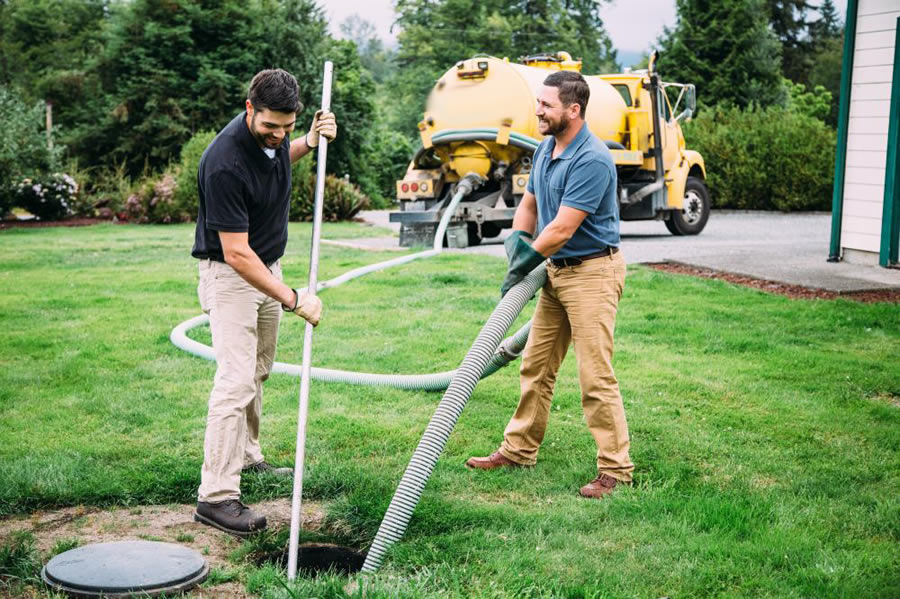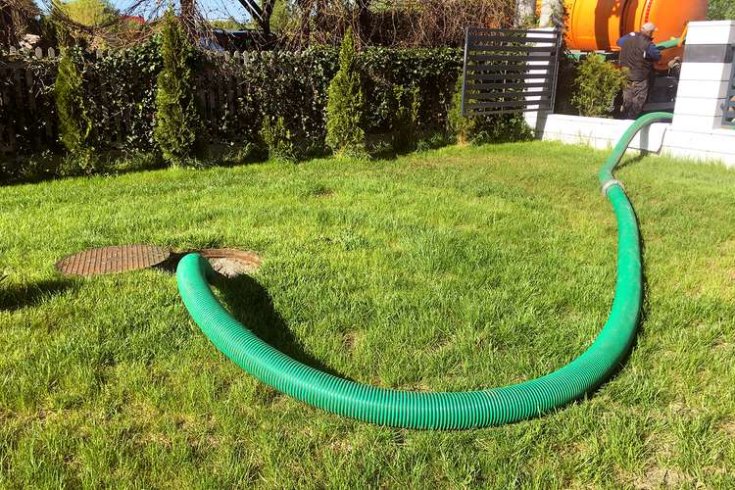
09
Septic tanks are a common wastewater treatment solution, especially in rural and suburban areas without access to municipal sewer systems. While these systems are essential for managing household sewage, their maintenance—or lack thereof—can have significant environmental and health consequences. Understanding these impacts highlights the importance of regular septic tank pumping, cleaning, and proper septic tank installation.
A septic tank is an underground system that treats wastewater from your home. Wastewater flows into the tank, where solids settle at the bottom, forming sludge, and lighter materials like grease float to the top as scum. The remaining liquid (effluent) exits the tank and flows into a drain field for further natural treatment in the soil.
This process is generally safe and effective when maintained correctly. However, poor maintenance or improper installation can turn a septic system into a source of pollution.
When septic tanks are not properly maintained, they can leak or overflow, releasing untreated wastewater into the environment. This can have several serious consequences.
One of the most immediate threats of a failing septic tank is contamination of nearby water sources. Leaking effluent can seep into groundwater, wells, lakes, and streams, introducing harmful bacteria, viruses, and nitrates. This contamination can affect drinking water quality for humans and animals and disrupt aquatic ecosystems.
Septic systems that are not functioning correctly can release excess nitrogen and phosphorus into the environment. These nutrients contribute to the growth of harmful algal blooms in water bodies, which can deplete oxygen levels, kill fish, and degrade water quality. This is especially concerning in regions where septic tanks are located near lakes or rivers.
When septic systems overflow or drain fields become saturated, untreated wastewater can pool on the ground’s surface. This not only creates foul odors and unsightly conditions but also leads to soil degradation and the spread of pathogens.
Failing septic systems can pose serious health risks to humans, particularly when wastewater contaminates drinking water supplies or surfaces where people come into contact with it.
Raw sewage contains harmful microorganisms such as E. coli, salmonella, and giardia. If these pathogens enter your home’s water supply or leach into nearby wells, they can cause serious illnesses, including gastrointestinal infections, skin rashes, and more severe diseases in vulnerable individuals.
Poorly maintained septic systems can emit toxic gases like methane, hydrogen sulfide, and ammonia. Prolonged exposure to these gases can lead to headaches, nausea, and in high concentrations, respiratory problems.
Standing water from septic overflows can create ideal breeding grounds for mosquitoes, which can spread diseases.
To prevent environmental and health hazards, homeowners must commit to routine septic tank pumping and septic tank cleaning. Most experts recommend pumping your tank every 3 to 5 years, depending on the size of the tank and the number of people in the household. Regular septic tank cleaning in Charlotte removes built-up solids that pumping alone may not eliminate, ensuring the system continues to function efficiently.
Proper septic tank installation is the first step toward a healthy, environmentally friendly system. Poorly installed systems may be improperly sized, lack adequate drainage, or be placed too close to water sources. These issues can lead to early system failure and increased risk of contamination. Always choose experienced, licensed professionals for septic tank installation, as they will ensure your system complies with local regulations and environmental standards.
While septic tanks are a vital part of many homes, they must be properly installed and maintained to avoid harmful effects on the environment and public health. Regular septic tank pumping, thorough septic tank cleaning, and professional septic tank installation are essential to keeping your system running efficiently. By taking proactive steps, and with the help of experts from Charlotte Septic Pros, homeowners can protect their families, communities, and local ecosystems from the dangers of septic system failure.

28
Why Is Sewage Backing Up into My Tub? When wastewater starts rising into your bathtub, it’s more than just unpleasant—it’s…
Read more
22
Can Bacteria Additives Eliminate the Need for Pumping? If you own a home with a septic system, you’ve probably seen…
Read more
12
A single slow drain in your home can feel like a minor inconvenience. Maybe the sink takes a little longer…
Read more
05
Are Slow Drains a Septic Issue or Just a Clog? Slow drains are one of those household problems that start…
Read more
02
What Septic Service Techs See That Homeowners Miss Most homeowners only think about their septic system when something goes wrong.…
Read more
21
Simple Habits That Protect Your Septic System A well-functioning septic system does its job quietly, but the moment something goes…
Read more
14
Pump Now or Pay Later: The Real Cost of Skipping Maintenance A properly functioning septic system is easy to forget…
Read more
11
Why Your Septic System Always Acts Up at the Worst Time Homeowners often feel that septic problems strike at the…
Read more
04
Early Warning Signs Your Septic Tank Needs Pumping For homeowners who rely on a septic system, routine maintenance is not…
Read more
29
Why Does My Septic System Smell Fine One Day and Terrible the Next? If you own a home with a…
Read more